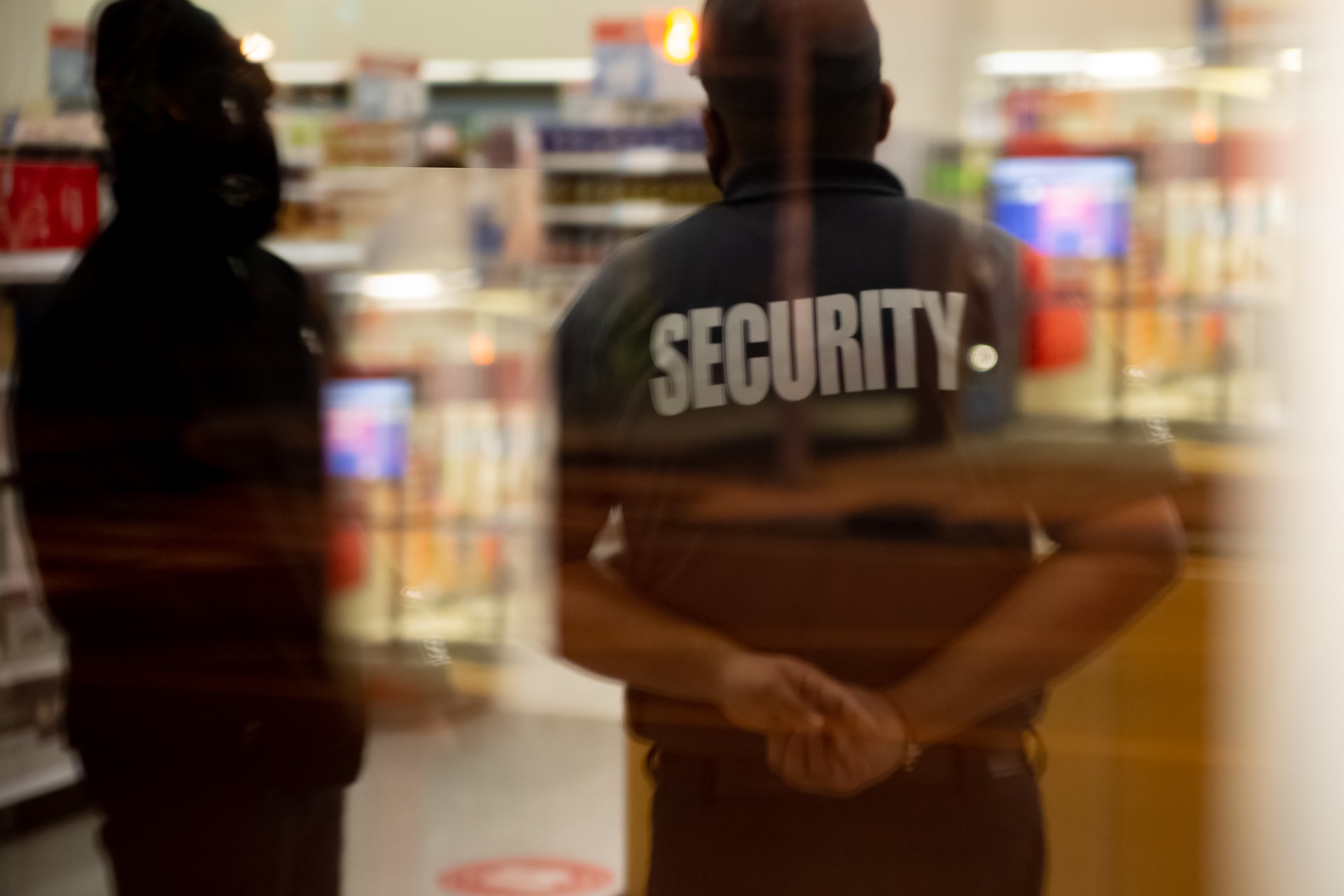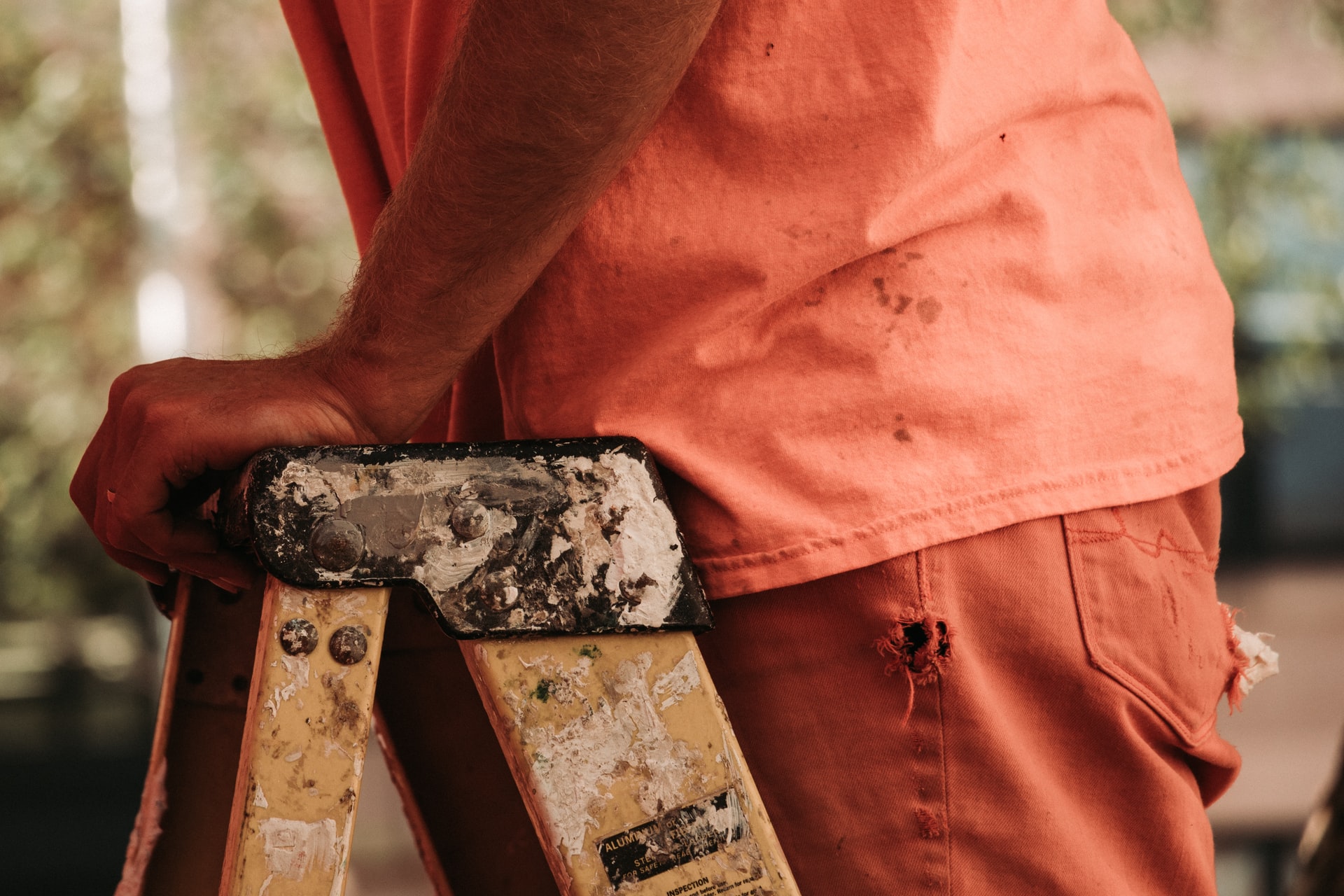Find Out The Difference Between Security Guard and Bodyguard
So much of the public’s understanding and impression of the security sector is based on how we see this profession depicted on the big screen.
We all remember Kevin Costner sweeping Whitney Houston off her feet in Bodyguard, and we all remember skipping Paul Blart Mall Cop.
The distinction between a security guard and a close protection bodyguard is significant. Though technically, one can be both.
A security guard is a person who is licensed by the state to conduct security guard tasks such as concierge, patrolling, gatekeeping, crowd management, and other security-related jobs. In order to apply for the license, they had to study a mandatory certificate.
A bodyguard, on the other hand, is a person who has been licensed by the state to act as a bodyguard and security guard. They have completed both needed courses and may be permitted to switch between the two depending on whether they have kept both licenses and mandatory training up to date.
Let’s take a closer look at these two security-related occupations and see what makes them different.
 Bodyguard
Bodyguard
Being a bodyguard may appear to be a glamorous career, but it entails much more than simply strolling the red carpet with a celebrity.
A large number of bodyguards work for corporate customers. The demand for personal security among higher-level executives has recently increased. Working as a bodyguard, or as a Close Protection Operative, allows you to work with a wide range of customers.
Due to the high-profile nature of the project and the client’s position, confidentiality is essential. The goal is to blend in rather than stand out.
What do bodyguards learn in school?
There are two courses you must take in order to become a bodyguard.
The first is a course that all security guards in Australia must take. It’s called the Certificate II in Security Operations, and it’s an eight-day workshop with some pre- and post-course online work required in most states. Some states require that this training be completed over a longer period of time.
This course also contains the first-aid training that is required for this license. You need to know first aid in security because you are often the person in charge of delivering first aid if something goes wrong during your shift.
This is a prerequisite for applying for your unarmed security guard license. The Office of Fair Trading in Queensland is in charge of this industry’s licensing, and it can take anywhere from two weeks to two months to acquire your license once you submit an application.
You can get out and start working in the security profession once you’ve received your license. You’ll also need to complete the Certificate III in Close Protection Operations if you wish to work as a bodyguard. For those who have already completed the Certificate II in Security Operations, this course is one of the upskilling alternatives. This course focuses on dispute resolution, risk assessment, client security coordination, and security material collection, storage, and disposal. You’ll also need a variety of other important abilities to succeed as a Close Protection Operative.
What Jobs Do Bodyguards Have?
Close Protection Operatives, sometimes known as bodyguards, work in a variety of settings. What sets them distinct is that, unlike a gatehouse guard or roving patrol guard, they are defending a person, and as a result, their employment takes them wherever their client travels.
Bodyguards protect a wide range of clients, including huge corporations, businesspeople, dignitaries, politicians, and celebrities.
They go where the customer goes, thus bodyguards may accompany their clients on vacations or wherever they are obliged to go. They may also be called upon to provide security in offices or outside of meetings.
Bodyguards frequently work intimately with their customers, being welcomed into their homes and on vacations to do their duties, which is why they must maintain complete confidentiality.
How Does It Feel to Be a Bodyguard?
You’ve probably walked right past a Close Protection Operative without ever realizing it, but you can bet they did. Bodyguards are taught to blend in and to be hyper-aware of their surroundings, particularly the individuals that surround their client.
A big portion of the job entails observing and judging people’s emotions and movements in order to secure the client’s safety. A Cose Protection Operative is also worried about their clients’ overall security. A Bodyguard is frequently part of a bigger security detail team that employs security monitoring equipment and many personnel.
A bodyguard, for example, will need to sweep the area before the client arrives to ensure that it is secure. They will conduct background checks and vet employees, as well as follow other security standards to ensure the client’s protection.
What Do Bodyguards Get Paid?
The average wage for bodyguards in Australia is $77,000. However, depending on the task, it can be much higher. Obviously, remuneration increases as the client’s prestige grows and you take on more perilous roles.
For instance, you could work for a company that provides a temporary security detail for a celebrity who is visiting a comic con. In this situation, your responsibilities would be limited to providing services only during the comic con, including transporting attendees to and from the event and monitoring fan interactions throughout the day. However, if you were offered a position on a large corporate client’s personal protection team, it would certainly pay more and take longer to complete the hiring process because you would be doing that duty for years.
A general Security Guard’s role will differ from that of a Bodyguard.
 Security Officer
Security Officer
A security guard can do a variety of tasks, but their primary goal is to safeguard people and/or property.
Being a Security Guard entails much more than simply monitoring the entry of a nightclub and turning away patrons wearing inappropriate footwear. It’s all about being alert, paying attention, and, above all, assisting others.
What do security officers research?
You must study the Certificate II in Security Operations to become a Security Guard.
This course will teach you all you need to know to be a successful Security Guard. You’ll learn how to communicate effectively, negotiate, comply with legal and procedural requirements, control individuals with empty hands techniques, assess risk, and provide security services. You’ll also learn how to patrol, use defensive techniques, monitor and manage access, entry and exit of people from the institution, and administer first aid.
The course charge for service is $1500, but most persons in Queensland are eligible for government financing. You may be eligible for this financing, which is known as Certificate 3 Guarantee funding, if you match the following criteria:
be 15 years or older; no longer in school (with the exception of school students in Years 10, 11, and 12 who are enrolled in a VET in School (VETiS) program); permanently reside in QLD; be an Australian citizen, Australian permanent resident (including humanitarian entrants), temporary resident with the necessary visa and work permits on the pathway to permanent residency, or a New Zealand citizen; and not hold, or be enrolled in, a Certificate III or higher-level quaternary qualification.
If you are successful in obtaining this financing, your course will cost $14 or $42 depending on whether you have a current concession card.
In NSW and the NT, there is also financing available for those who want to get their security license. There are also scholarships and payment arrangements that you may be eligible for.
What Are the Roles of Security Guards?
The beauty of the security sector is that there are so many different security roles to choose from. Every industry need security personnel.
There is a job in security for everyone. If you enjoy music or live performances, you may work as a crowd control officer at Suncorp Stadium or the Brisbane Entertainment Centre.
If you enjoy the nightlife, you could work as a crowd controller in a Valley nightclub or music venue. Working the night shift at the hospital’s emergency room must pique your curiosity if you’re looking for a little thrill.
You might be an excellent concierge at huge corporate buildings and posh hotels if you’re good with people and have flawless personal presentation. You’d make a good store security guard if you’re good with people and can handle problems with grace. This implies you’ll be working more day shifts, but you’ll still be working weekends.
Roving patrol work would be ideal for you if you’re a night owl. You work all night at these positions, traveling around to different buildings, checking the alarm system, and making sure no one is hanging around who shouldn’t be.
The same can be said for gatehouse work. The evening gatehouse duty is all about keeping an eye on things, performing your rounds, and watching the arrivals and departures if you’re a night owl.
Security guards work in a variety of industries, including hospitality, art, logistics, and corporate. Anywhere you wish to work, there is a security position available.
What Is It Like to Work in Security?
The nature of security work varies greatly depending on the role. Spending as a roving guard, for example, would entail working nights and weekends, strolling about the buildings, inspecting the security system, and ensuring that everything is secure.
As a retail security guard, you’ll most likely be responsible for monitoring CCTV footage, as well as working with your team, patrolling, and assisting customers.
If you work as a concierge, you must dress nicely, be exceedingly pleasant and helpful, and be able to enforce the building’s laws.
Roles in security and the tasks you’ll complete vary greatly based on your position, but there are some aspects of the profession that are common.
You must be well-presented to succeed in security. Almost every security post nowadays requires you to wear a suit or a uniform. You should keep your shirt pressed and your shoes shined to demonstrate your authority in the position.
You’ll also need great verbal and writing communication skills, as you’ll need to communicate with others in your role and keep track of everything that happens throughout your shift. Security guards must be methodical and meticulous in their duties. All protocols and procedures must be strictly followed, and everything must be documented.
Finally, you must have a real desire to assist others because, at the end of the day, that is what this profession entails.
What Do Security Guards Get Paid?
The Security Services Industry Award MA000016 pays security guards. Most guards start out as casual employees, and under this award, a casual employee working as a security officer level 1 earns $28.55 per hour, rising to $31.55 per hour for a level 5. On Saturdays, you can earn $39.97 per hour as a level 1 casual, and $51.39 on Sundays.
As a level 1 security guard, you can make $22.84 per hour under the same award as a full-time or permanent part-time employee, but if you work weekends or night shifts, you can earn as much as $45.68 per hour. On that pay grade, you can advance all the way to level 5.
You can surely make good money working in security because it includes a lot of nights and weekends.
What Is The Best Way To Get Into The Security Industry?
If you’re interested in learning more about security, check out the course or schedule a meeting with one of our knowledgeable course advisors. They know everything there is to know about becoming a security guard and what you’ll need to accomplish to advance to being a bodyguard.



